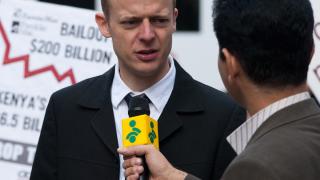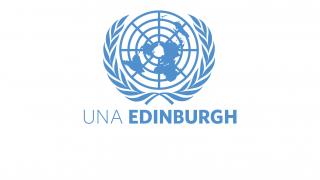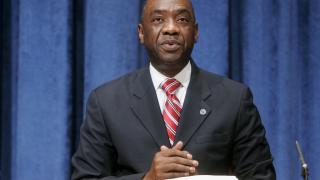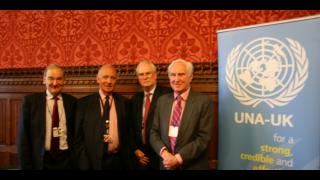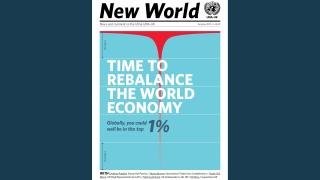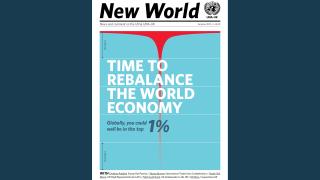
Global economic crisis leading to fears of a rise in forced labour
Most people are aware of the impact of the recent economic downturn on rising unemployment and increased poverty. However fewer people may understand how these factors increase vulnerability to forced labour and enslavement.
One of the most obvious effects of the recession is its effect on migration, as poor or marginalised people seek economic opportunities beyond the borders of their local communities and countries. Traffickers are particularly able to take advantage of this increase in migration, preying on the aspirations of people seeking an opportunity to gain a better standard of living by offering false promises of jobs, or by greatly exaggerating pay and working conditions.
Migrant workers often lack traditional social support structures in the countries to which they travel for work. This means they are especially vulnerable to being exploited: at the outset of their journey, for example, they may be compelled to pay illegal recruitment charges to agencies who promise them employment overseas but which they discover too late have actually placed them in debt bondage.
Their situation may be further exacerbated if they have poor knowledge of the laws and languages of the countries to which they have travelled. Even if they have entered legally and free of debt bondage, they may be forced to accept a precarious existence because of immigration rules that prevent workers from changing employer, as is the case for domestic workers in the UK. The British government, along with the Government of Sudan, also refused in 2011 to support the newly created ILO domestic worker convention, which was designed specifically to offer legal protection to this very vulnerable group, by finally bringing domestic workers under mainstream employment regulations.
As national governments seek to protect their own labour markets in difficult economic times by reducing legal immigration, criminal gangs are offering the desperate illegal entry routes. Migrants without the right to work legally are especially vulnerable because of fears over their employers denouncing their migration status to the authorities.
As austerity often means a reduction in government services this can also mean a reduction in the capacity to adequately enforce labour regulation and other mechanisms that prevent people from becoming vulnerable to exploitation and forced labour. This is especially concerning during a climate where businesses face immense financial pressure to maintain profits, sometimes by cutting costs and corners in relation to the basic rights of people to decent work. These sorts of problems are exacerbated in less protected forms of employment, including temporary and agency work.
The economic crisis is also leading to reductions to international aid budgets adding to the under-development of poor countries that is leading to millions leaving home in search of work. However it is important to note that few international aid programmes make trafficking prevention a significant, let alone central, part of their work. Hence these programmes do little to reduce the vulnerability of those most likely to be compelled into forced labour either in their home countries or overseas. This failure to fundamentally address forced labour as part of aid remains a dreadful gap in most international efforts to reduce poverty.
Governments must reduce the factors that leave people vulnerable to forced labour, making the eradication of slavery a central concern in both business and aid policy, as well as in policing and justice, where protection of victims of forced labour and prosecution of traffickers must be central concerns.
Slavery and forced labour are not insurmountable challenges: they are human institutions and like all human institutions they can be changed by human action. Such action is unfortunately lacking from the majority of our political and business leaders.
Dr Aidan McQuade is Director of Anti-Slavery International: www.antislavery.org



